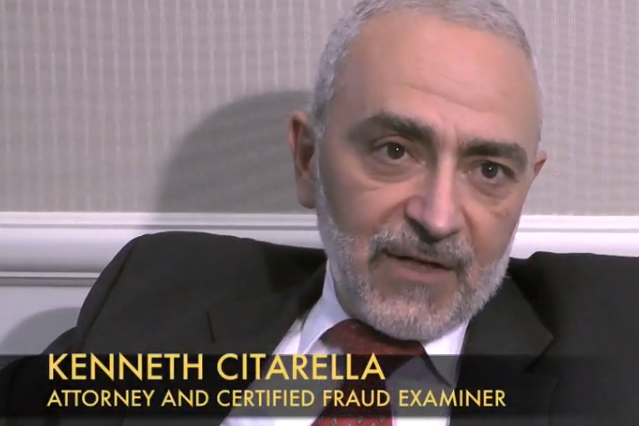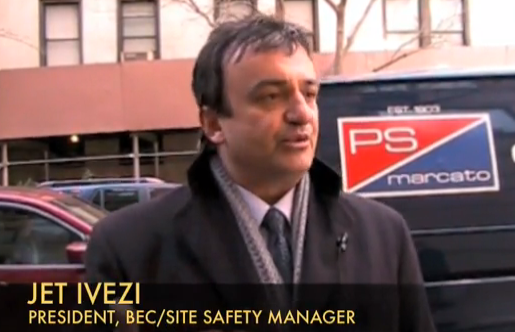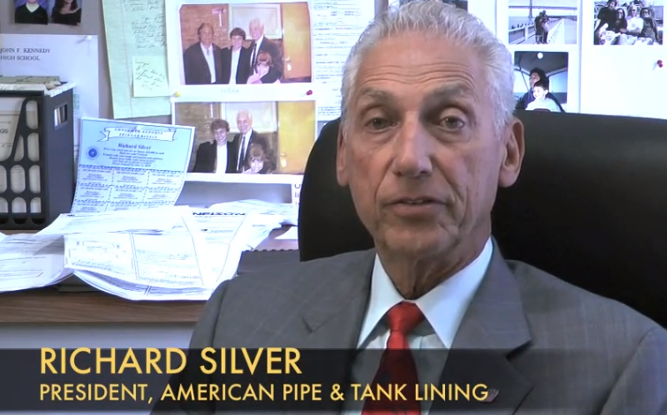HABITAT
Attorney: Are Residents' Negative Comments on Social Media Defamation?
Written by Stacey Patterson on July 12, 2013
In the advanced computer age in which we live, the first place people go to share an event in their lives, whether good or bad, is the Internet. Whether it's an email, a blog, a tweet or a social network update, people are typically looking for a sympathetic ear or more commonly an alliance of similarly situated individuals. When it comes to qualified private communities such as co-ops and condominiums, it has become very common to discover blogs written by disgruntled homeowners seeking to rally his/her neighbors to cast negativity against a community, including their boards.
Mayoral Aspirants Give Views on Co-op / Condo Taxation, Other Issues at Forum
Written by Frank Lovece on August 23, 2013
Eight of the 11 main mayoral hopefuls attended a forum on co-op and condominium issues Tuesday in Queens, giving their views on property-tax disparity between co-ops / condos and single-family housing, the possibility of changing federal rules to allow FEMA grants for common-area repair and other topics before a crowd of several hundred. The two-hour event was sponsored by a co-op and condo advocacy group and a local bar association.
Habitat 101: Five Common Forms of Co-op and Condo Fraud
August 15, 2013
Aug. 15, 2013 — Co-op and condo fraud tends to run in cycles. There was a major wave of fraud in 1994, when 82 managing agents and four firms were indicted in a kickback investigation. In 1999, 59 more individuals and 21 companies were indicted in various kickback and payoff schemes. Among the indicted were managing agents, management companies, supers, architects, engineers, waterproofing contractors, and even co-op board members.
Aug. 20, 2013 — Following a spate of crane collapses and other construction accidents that resulted in numerous fatalities at New York City work sites, the Department of Buildings has since required that exterior construction work on buildings 15 stories or taller must have a site safety manager full-time. A less expensive site safety coordinator is required at buildings nine to 14 stories tall, and an even less expensive construction superintendent is required for nine stories or less.
Under New Law, Co-ops, Condos, Other Businesses Must Grant Sick Leave
Written by Frank Lovece on August 16, 2013
New York City co-ops and condos with at least 15 full- and part-time employees must offer them paid sick leave under a newly passed City law. Under the mandate, employees earn one hour of sick leave for every 30 hours worked, capped at a maximum 40 hours, or five days, per calendar year. As well, buildings with fewer employers must offer the same amount of unpaid sick leave. Depending on the number of workers, the provisions take effect in 2014 and 2015, leaving boards and other businesses time to plan.
Habitat 101: Intro to Water Tanks
August 13, 2013
Aug. 13, 2013 — Buildings over six stories tall in New York City generally contain a water tower; with lower buildings, the City's water system has just enough pressure to reach the top floor. If your building has a water tower, here's a quick primer plus a video to tell you all the basics that every condo or co-op board member needs to know.
What Happens When a Super Buys an Apartment and Gains Control of a Board?
Written by Bill Morris on August 06, 2013
Promoting staff based on how popular someone is with the residents, rather than on strictly professional criteria and experience, is an invitation to problems — and there could be no greater example than the experience of one co-op board in Freeport, Long Island, when a staffer's popularity allowed him to buy two apartments and eventually win election to the five-member board, where he and two cronies gained control of the building.
Bill Introduced in Congress to Let Co-op & Condo Boards Apply for FEMA Grants
Written by Frank Lovece on August 02, 2013
A bill introduced in Congress Wednesday by New York Rep. Steve Israel (D - 3rd District) would make housing cooperatives and condominium associations eligible for Federal Emergency Management Agency grants.
Co-op shareholders and condo unit-owners themselves already are eligible for such funds, with many such homeowners after superstorm Sandy having received up to $31,900 each for emergency housing not covered by insurance. Homeowner associations, however, cannot apply for FEMA grants, which co-op and condo boards say are needed to repair common areas as well as such physical-plant necessities as boilers.
Primer: A Basic Guide to Working with the Landmarks Preservation Commission
Written by Habitat Staff on August 01, 2013
What's the process for working with the Landmarks Preservation Commission, the New York City agency established to protect the city's architectural heritage shortly after the 1963 demolition of the original Penn Station? Here's a quick, handy summary. If you're in a landmarked building or district and your condo or co-op board is contemplating exterior work, print this out and distribute it to your board members so that everyone will have the basic facts. Trust us: That'll save a lot of time and questions.
Hiring: When Boards Bow to Mob Rule Instead of Making Informed Decisions
Written by Bill Morris on July 25, 2013
Popularity is a funny thing. It can be the result of legitimate virtues or the byproduct of shrewd self-promotion. When it comes to hiring, firing, and promoting staff, co-op and condo boards need to know how to tell the difference. "If somebody is popular, it's usually for one of two reasons," says Steve Greenbaum, director of property management at Mark Greenberg Real Estate. "Either he's reliable, or he does people special favors. There are a million little things staff people can do. Boards need to ask: Is he popular for the right reasons, or is he just a schmoozer?"
It's not a theoretical question. The board at a 110-unit Brooklyn co-op learned the hard way that letting popular sentiment trump hard logic can have dire consequences.





 View video now...
View video now...
 View video now...
View video now...
 View video now...
View video now...

